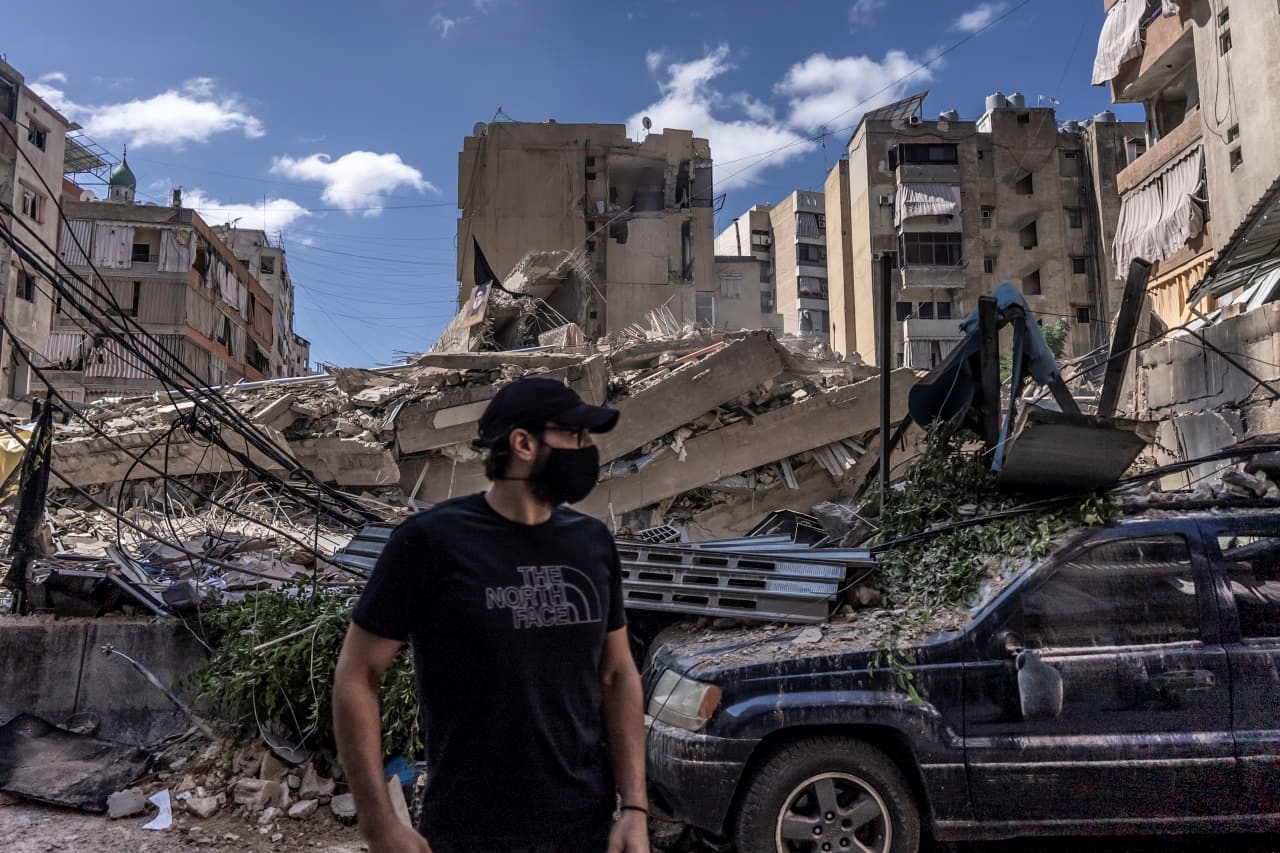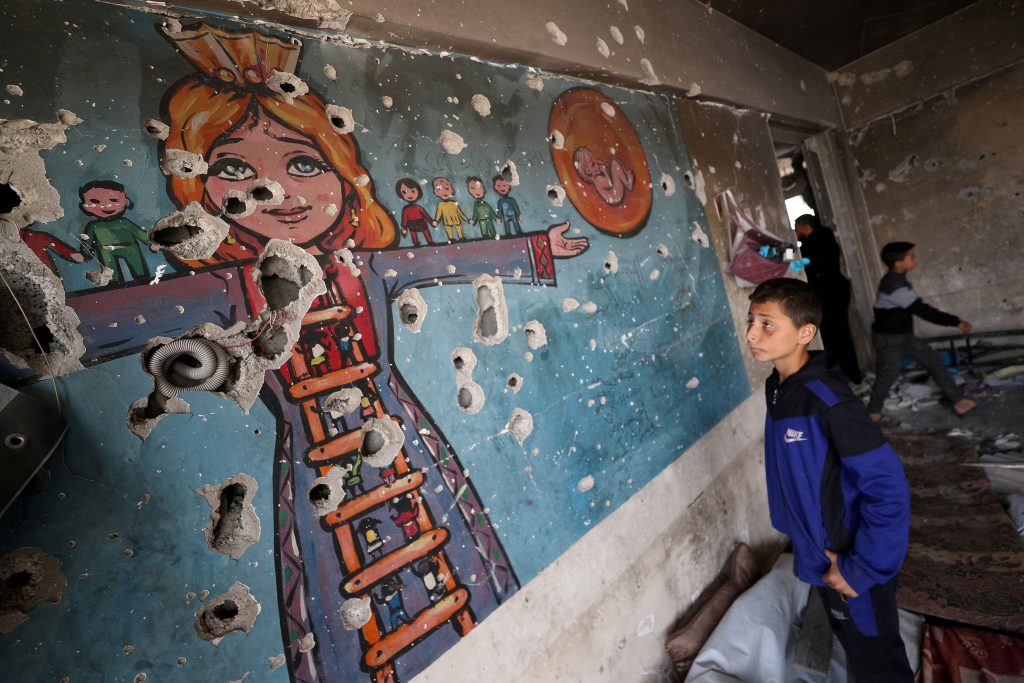Israel sent additional troops to bolster its forces in southern Lebanon as it engaged in close fighting with the militant group Hezbollah.
Hezbollah said for the first time Wednesday that it was fighting Israeli forces inside Lebanon. Standing in front of a building in Beirut’s southern suburbs that had been destroyed earlier this week in an Israeli airstrike, Hezbollah spokesman Mohammed Afif said the group’s fighters were resisting the Israeli offensive.
“We’re standing fast,” he said. “This is the start of a long battle.”
Israel launched its ground operation in Lebanon earlier this week aiming to roll back Hezbollah from areas along its northern border. The Israeli military Wednesday announced the first deaths from the war in Lebanon, naming eight soldiers who had died in combat.
The deaths point to the dangers of Israel’s land operation in Lebanon , where it now faces Hezbollah on terrain where the militia group has twice fought the Israeli military to a standstill in recent decades.
The move to put troops on the ground followed weeks of elaborate intelligence operations , targeted killings of Hezbollah leaders including top official Hassan Nasrallah , cross-border raids and a heavy bombing campaign that included some 3,000 airstrikes across the small country.
The violence continued to spread, with Iran launching a ballistic missile attack on Israel on Tuesday, in part in retaliation for Nasrallah’s killing. The broadening war risks further drawing both Iran and the U.S. into the fray.
Israel’s military said Wednesday it was bolstering the number of troops carrying out raids on Hezbollah targets in southern Lebanon. The 36th Division—including soldiers from the elite Golani Brigade—as well as two armored and infantry brigades, will join the operation, which began Monday.
The formal move across the border followed months of secret raids in Lebanon by Israeli troops. Since the start of the war in Gaza almost a year ago, Israel has conducted around 70 raids in the border region, it said Tuesday.
Hezbollah began firing rockets across the border shortly after the Hamas-led Oct. 7 attacks on southern Israel that killed 1,200 and set off the war in Gaza. The Israeli government is under significant pressure to suppress the attacks so that residents evacuated from the north can return to their homes.
Hezbollah said Wednesday morning that it had clashed with Israeli forces and inflicted casualties on them. Later on Wednesday, the group said it had detonated a bomb, wounding Israeli soldiers in the village of Yaroun along the Israeli border.
Asked about Hezbollah’s claims, the Israeli military referred to its previous statements, in which it said it was engaging in close combat with the group and attacking its military infrastructure.
Lebanon’s army, which ordered troops to leave the border area on Monday ahead of Israel’s ground operation, said Wednesday that Israeli forces had breached the Blue Line, which separates the two countries and was demarcated by the U.N. after Israel withdrew its forces from southern Lebanon in 2000.
The Lebanese said Israeli troops crossed 1,300 feet into Lebanese territory in the areas of Khirbet Yaroun and Bab al-Adaisseh, and withdrew after a short period.
Afif, in one of the first public appearances by a senior Hezbollah official since Nasrallah was killed in an Israeli airstrike in Beirut last week, told reporters that the group’s military capabilities, including command and control, remained intact.
“Our forces are ready,” he said. “We have enough fighters, we have enough weapons, we have enough ammunition to face the enemy.”
He said the group’s fighters clashed with Israeli forces in two villages, Odaisseh and Maroun al Ras, minutes before the press conference began.
Afif spoke in Beirut’s southern suburbs, which Israel has pounded with airstrikes it says are aimed at Hezbollah’s leadership and weapons. The southern section of the city, known as Dahiyeh in Arabic, was almost totally deserted Wednesday, with empty streets and shattered glass on sidewalks in front of beauty salons, convenience stores, and pharmacies.
Dotting the neighborhood are buildings reduced to piles of crumpled concrete by the Israeli airstrikes. On and near the rubble, Hezbollah placed portraits of Nasrallah, picturing the former leader staring intently.
Ali Ayyash, a 38-year-old shopkeeper, was one of the few civilians in the neighborhood. His family fled the area Friday night after the airstrike that killed Nasrallah, but he returned to open his shop.
“It felt like all of Dahiyeh was going to fall down,” he said of the attack Friday night. “We lived here our whole lives, and now there’s no one here.”
A multinational peacekeeping force, the United Nations Interim Force in Lebanon, or Unifil, has had thousands of troops stationed in the country’s south since 1978 to help secure the border and prevent renewed conflict.
A Unifil official said Wednesday that its patrols had decreased significantly along the border. Some posts have moved to the highest level of security readiness, which requires troops to shelter in place.
Lebanon’s Ministry of Health said 55 people were killed and 156 others wounded on Tuesday in Israeli airstrikes across the country.



